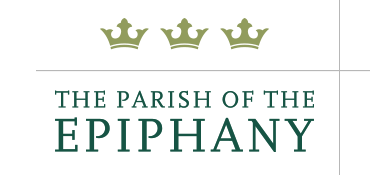 Greetings friends!
Greetings friends!
I write to you during this month of remembrance; indeed, some traditions give special attention to the faithful souls of the departed for the entire month of November (the month of All Souls). For the liturgically minded among us, November begins with a bang with All Saints’ Day on November 1 (preceded by Halloween, or the Eve of All Hallows’ Day as Rev. Nick recently explained at Midweek), followed by the solemnity of All Souls’ Day on November 2. Continuing the theme, we have the secular Veterans Day (or Armistice Day, or Remembrance Day) on November 11, and often the transferred Remembrance Sunday following that. It marks the day in 1918 an agreement was signed between Germany and the Allied nations to end World War I. During this month, may we remember with both tears and smiles those we have been fortunate to share this journey with.
Remembrance is not the only theme found in November. We are also nearing the end of the church’s liturgical year, which begins with the ‘first’ Advent season four Sundays before Christmas Day, when we prepare for our annual celebration of Christ’s first coming among us as a baby. Our liturgical year comes to and end with a ’second’ Advent season; no, it isn’t officially titled as such, but you’ll notice some of the same Advent readings and hymns starting to appear this Sunday, November 12, and running through the final Sunday of the year November 26: Christ the King Sunday (also known as the Sunday of the Fulfillment). This last Sunday in the church year is the day we celebrate and look forward to the next coming of Jesus; it points us to the culmination of God's purposes in history through Christ. It is not about Christ becoming king (since that happened at the resurrection/ascension), but about the fulfillment of his kingship. If you are a fan of Bach’s cantata "Wachet auf, ruft uns die Stimme" BWV 140 (Sleepers wake, for night is flying), you may be aware that he composed this in Leipzig for the 27th Sunday after Trinity, and first performed it on 25 November 1731, the last Sunday of the church year (Advent I was the following Sunday 2 December 1731).
More so each year, I am struck by how suddenly the days become shorter and the temperatures shift, made more drastic still by the annual time change here Massachusetts. As we proceed through the rest of November, and the end of the liturgical year, I leave you with a poem by English classical scholar and poet Alfred Edward Housman (1859-1936). Here he remembers a deceased friend, who can no longer be tormented by the cold. All best wishes as we approach the next round of Advent seasons!
Jeremy Bruns
The Night Is Freezing Fast
(from Last Poems, published 1922)
The night is freezing fast,
To-morrow comes December;
And winterfalls of old
Are with me from the past;
And chiefly I remember
How Dick would hate the cold.
Fall, winter, fall; for he,
Prompt hand and headpiece clever,
Has woven a winter robe,
And made of earth and sea
His overcoat for ever,
And wears the turning globe.
A.E. Housman




